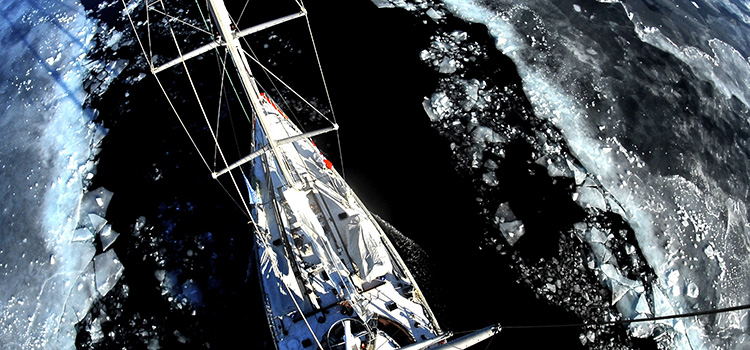UCA has coordinated a study revealing the existence of a large conveyor belt of plastic waste up to the Arctic 20 April 2017
The collaboration between two global marine research programmes, Tara Oceans Expéditions 2009-2014 (France) and Malaspina Expedition 2010 (Spain), has revealed the existence of a large-scale low of floating waste from the Atlantic to the Arctic. This study, published in the prestigious journal Science Advances, highlights that after only a few decades of plastic materials being used, they have already become a serious problem.
The collaboration between two global marine research programmes, Tara Oceans Expéditions 2009-2014 (France) and Malaspina Expedition 2010 (Spain), has revealed the existence of a large-scale flow of loating waste from the Atlantic to the Arctic. This study, published in the prestigious journal Science Advances, highlights that after only a few decades of plastic materials being used, they have already become a serious problem.

Photography: Francois Aurat and Anna Deniaud.
Bibliographical references: A. Cózar, E. Martí, C. M. Duarte, J. García-de-Lomas, E. Van Sebille, T. J. Ballatore, V. M. Eguíluz, J. I. González-Gordillo, M.L. Pedrotti, F. Echevarría, R. Troublè, X. Irigoien (2017) ‘The Arctic Ocean as a dead end for floating plastics in the North Atlantic branch of the Thermohaline Circulation’. Science Advances 3, e1600582.


